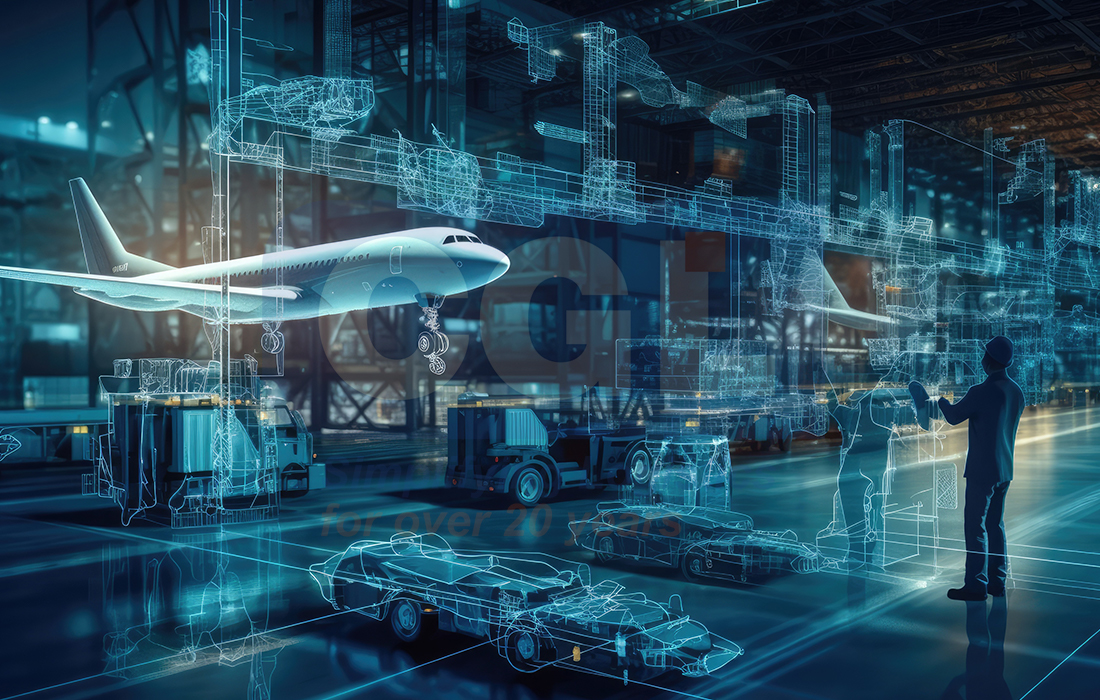In the fast-evolving realm of aerospace logistics, the integration of cutting-edge technology and innovative practices is reshaping the industry. As global demand for efficient, reliable, and swift transportation of aerospace components and equipment rises, logistics companies in India are at the forefront of this transformation. With a burgeoning aerospace sector, India is poised to become a pivotal player in aerospace logistics, and companies like CG Logistics are leading the charge.
The Current Landscape of Aerospace Logistics
The aerospace industry demands precision, speed, and safety, given the high-value and often delicate nature of the cargo involved. Traditional logistics solutions are being outpaced by the need for more sophisticated, tech-driven approaches. This shift is particularly evident in India, where logistics services are rapidly adapting to meet global standards.
Key Challenges in Aerospace Logistics:
- Complex Supply Chains: Aerospace logistics involves intricate supply chains with multiple stakeholders, including manufacturers, suppliers, and maintenance providers.
- High Value and Sensitivity of Cargo: Aerospace components are often expensive and require careful handling to prevent damage.
- Regulatory Compliance: Navigating the myriad of international and domestic regulations governing the transport of aerospace parts adds an additional layer of complexity.
Emerging Trends in Aerospace Logistics
To address these challenges, several trends are shaping the future of aerospace logistics.
- Digital Transformation and Automation
Digital transformation is revolutionizing logistics services in India. The adoption of advanced technologies such as Artificial Intelligence (AI), Internet of Things (IoT), and Blockchain is streamlining operations and enhancing efficiency.
– AI and Machine Learning: AI algorithms are being used to predict demand, optimize routes, and manage inventory. Machine learning models can analyze historical data to forecast potential disruptions and suggest proactive measures.
– IoT: IoT devices enable real-time tracking of shipments, providing visibility into the location and condition of cargo. This is crucial for high-value aerospace components that require constant monitoring.
– Blockchain: Blockchain technology offers a secure and transparent way to track the movement of goods. It ensures that all stakeholders have access to accurate and tamper-proof records, thereby reducing fraud and improving trust in the supply chain.
- Advanced Warehouse and Inventory Management
Modern warehouse management systems (WMS) and inventory management solutions are becoming integral to aerospace logistics.
– Robotics and Automation: The use of automated guided vehicles (AGVs) and robotic arms in warehouses speeds up the handling and storage of goods, reducing human error and increasing efficiency.
– Smart Warehousing: Smart warehousing leverages IoT and AI to create highly efficient and responsive warehouse environments. Sensors and automation tools provide real-time data on inventory levels, optimizing stock management and reducing downtime.
- Sustainability and Green Logistics
With the global emphasis on sustainability, logistics companies in India are adopting green practices to minimize their environmental impact.
– Eco-friendly Transportation: Companies are exploring alternative fuels and energy-efficient transportation modes to reduce carbon emissions.
– Sustainable Packaging: The use of biodegradable and recyclable materials for packaging is gaining traction, reducing waste and promoting environmental responsibility. Read more





Comments